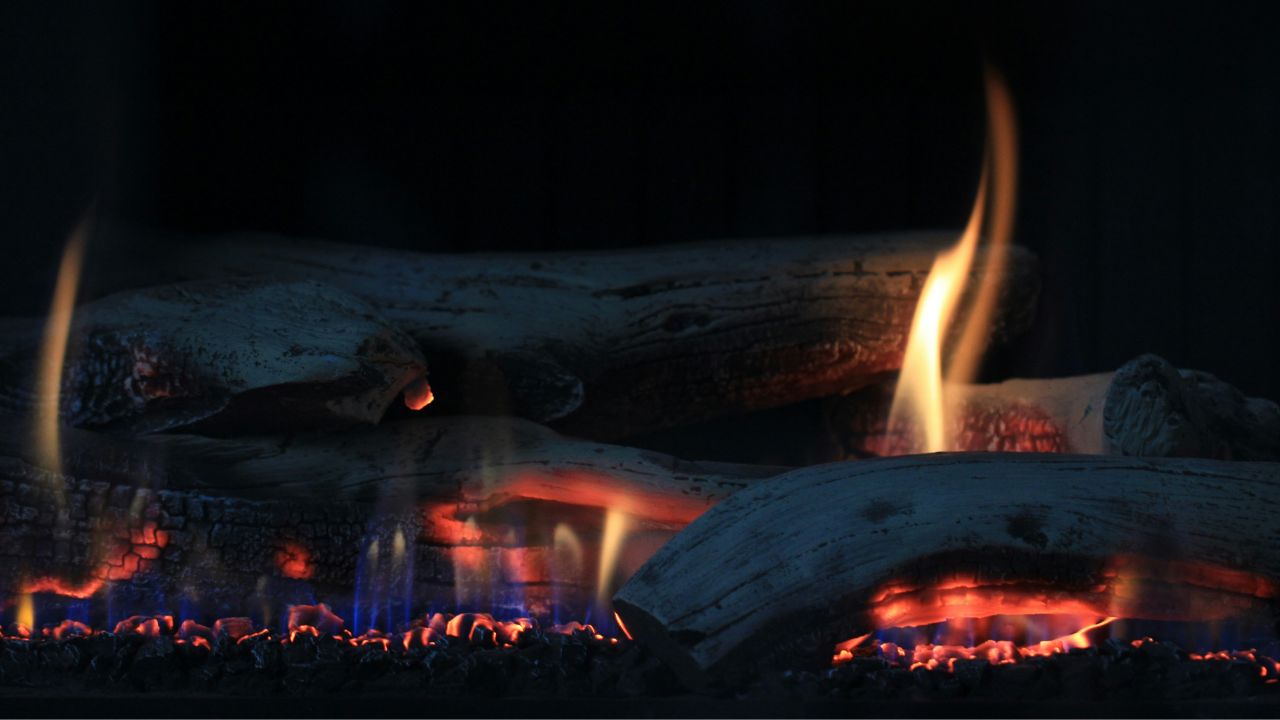The Benefits of Converting Your Wood Fireplace to Gas

Fireplaces add warmth, ambiance, and a cozy atmosphere to any home. While traditional wood burning fireplaces have their charm, many homeowners are now opting to convert them to gas. If youíve been thinking about making the switch, this guide will help you understand the key benefits of converting your wood fireplace to gas.
1. Convenience and Ease of Use
One of the most significant advantages of a gas fireplace is convenience. With a wood burning fireplace, you need to chop or purchase wood, stack it, and regularly clean up ash and debris. In contrast, a gas fireplace is as simple as flipping a switch or pressing a button. Many modern gas fireplaces even come with remote controls or smartphone apps, allowing you to start a fire from the comfort of your couch.
2. Lower Maintenance and Cleaning
Wood fireplaces require frequent maintenance to ensure they are safe and efficient. From cleaning out ashes after every use to arranging annual chimney sweeps, the upkeep can be time consuming and costly. Gas fireplaces, however, are much easier to maintain. Thereís no wood to chop, no ashes to clean up, and no creosote build up in the chimney. An annual inspection and a check up on the gas line are generally all thatís needed.
3. Improved Energy Efficiency
Gas fireplaces are known for their high energy efficiency. Unlike wood fireplaces, where a large amount of heat escapes through the chimney, gas fireplaces are designed to maximize heat output. With options like direct vent and ventless gas fireplaces, you can achieve up to 70-90% efficiency, ensuring more heat stays in your home and less energy is wasted.
4. Cost Savings Over Time
While the initial cost of converting a wood fireplace to gas can vary, the long term savings can be significant. Wood can be expensive, especially in urban areas where sourcing seasoned firewood is a challenge. Gas, on the other hand, tends to be slightly more affordable but it does has it peaks and dips on the price. Plus, the efficiency of gas fireplaces means lower energy bills since they can effectively heat a space without requiring the central heating system to work as hard.
5. Enhanced Safety Features
Safety is a critical consideration for any fireplace. Wood burning fireplaces can pose risks such as flying sparks, rolling logs, or creosote build up, which could lead to chimney fires. Gas fireplaces eliminate these dangers. They are equipped with safety features like automatic shut off valves and carbon monoxide detectors, reducing the risk of fire and toxic fumes. Furthermore, gas fireplaces do not produce smoke, minimizing respiratory risks for household members.
6. Consistent and Controllable Heat Output
Gas fireplaces provide consistent heat output and are easily adjustable. Unlike wood burning fireplaces, where the heat level depends on the size of the fire and the type of wood, gas fireplaces allow you to set the desired temperature and maintain it. This feature is particularly beneficial during cold winters when you want a steady, reliable source of warmth.
7. Versatile Design Options
Converting to gas doesnít mean sacrificing style. Gas fireplaces come in a wide range of designs, from traditional to contemporary, and can be customized to fit your home's aesthetic. You can choose from different types of logs, stones, or glass crystals to suit your style. Additionally, because gas fireplaces donít require a chimney, you have more flexibility in where you place them.
8. Environmentally Friendly Choice
Burning wood releases a significant amount of particulate matter and pollutants into the air, contributing to poor indoor and outdoor air quality. Gas fireplaces, on the other hand, burn cleanly and emit significantly fewer pollutants. This makes them a more environmentally friendly choice, especially in urban areas where air quality can be a concern.
9. Increased Home Value
A modern, efficient, and low maintenance gas fireplace can increase your homeís value. Potential buyers are often attracted to the aesthetics and convenience of a gas fireplace. By converting your wood fireplace to gas, you can boost your homeís appeal and marketability.
10. Reliable Heat Source During Power Outages
Gas fireplaces can be a dependable heat source during power outages, as they do not rely on electricity to operate. This reliability ensures that you and your family stay warm and safe even when the power goes out, which can be especially valuable in areas prone to winter storms.
Converting your wood fireplace to gas offers numerous benefits from convenience and cost savings to safety and energy efficiency. Whether you're looking to reduce maintenance, improve air quality, or simply enjoy a cozy fire with the push of a button, a gas fireplace could be the perfect solution for your home. Make the switch today and enjoy a hassle free, warm, and inviting atmosphere all year round.
The information on the Ash pan World blog is for general purposes only and is not a substitute for professional advice. Always consult qualified professionals for specific issues. Ash pan World is not responsible for any harm or damage resulting from following blog advice, and use of the information is at your own risk. We are not liable for content on linked external websites.
